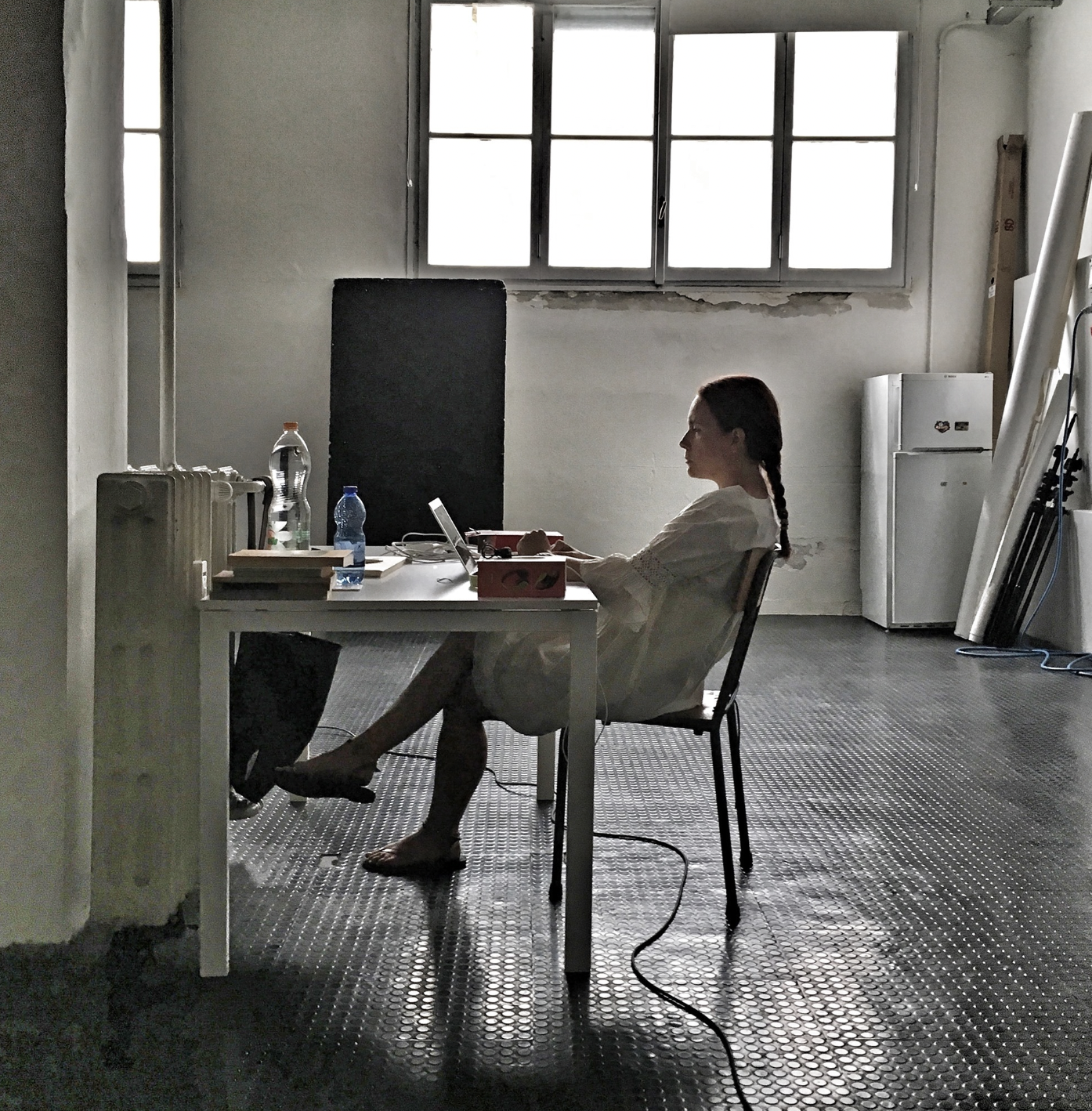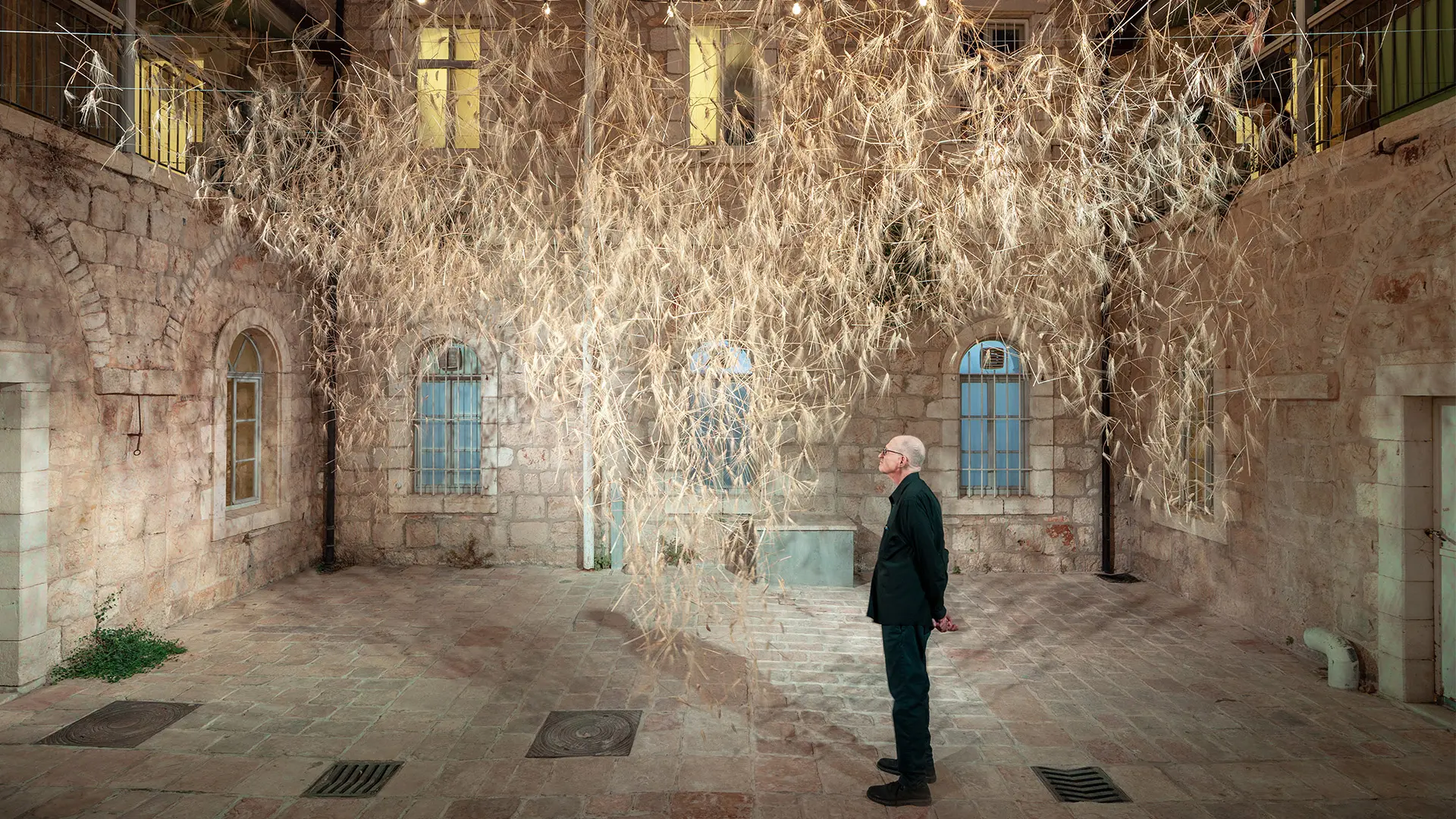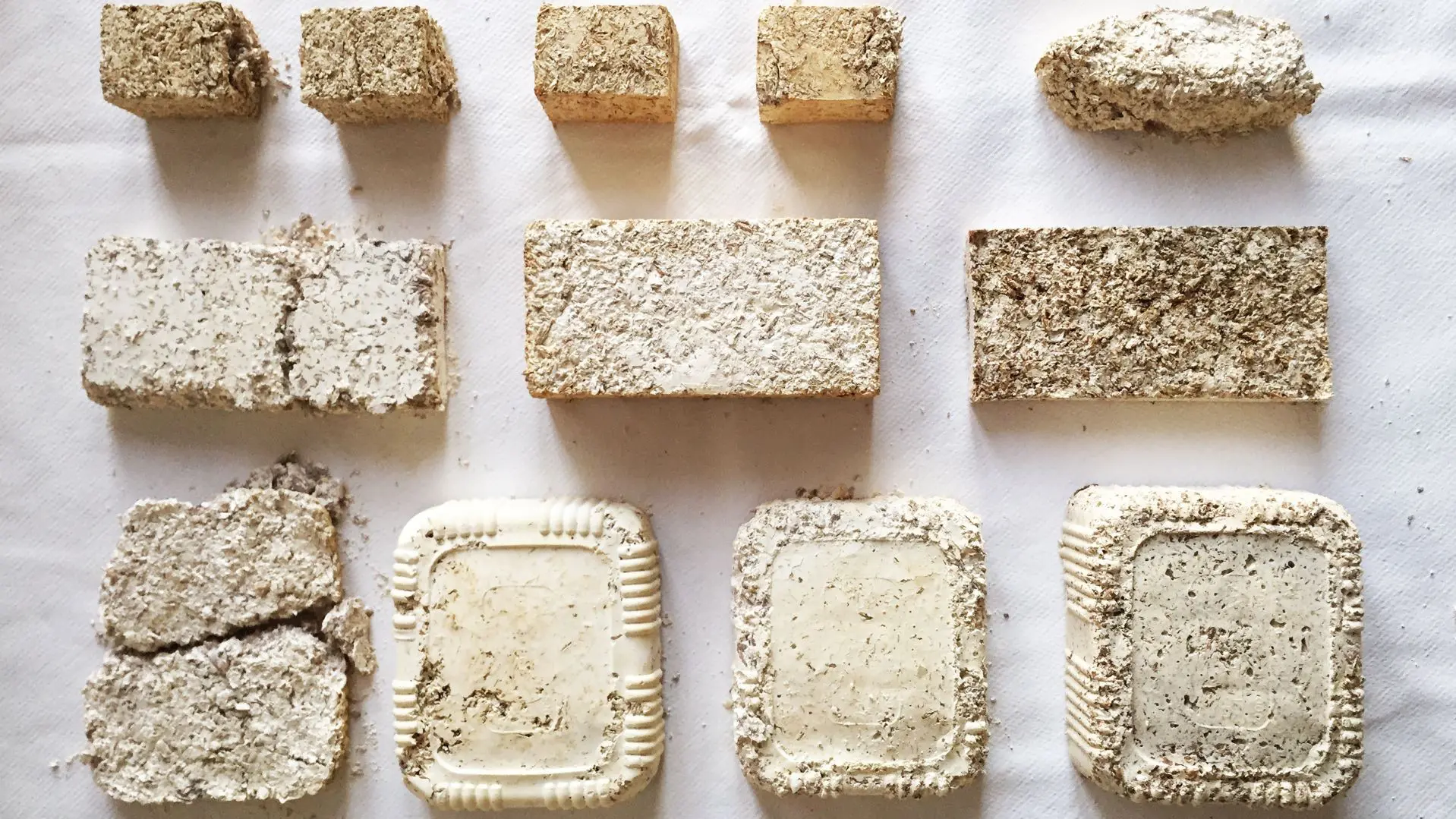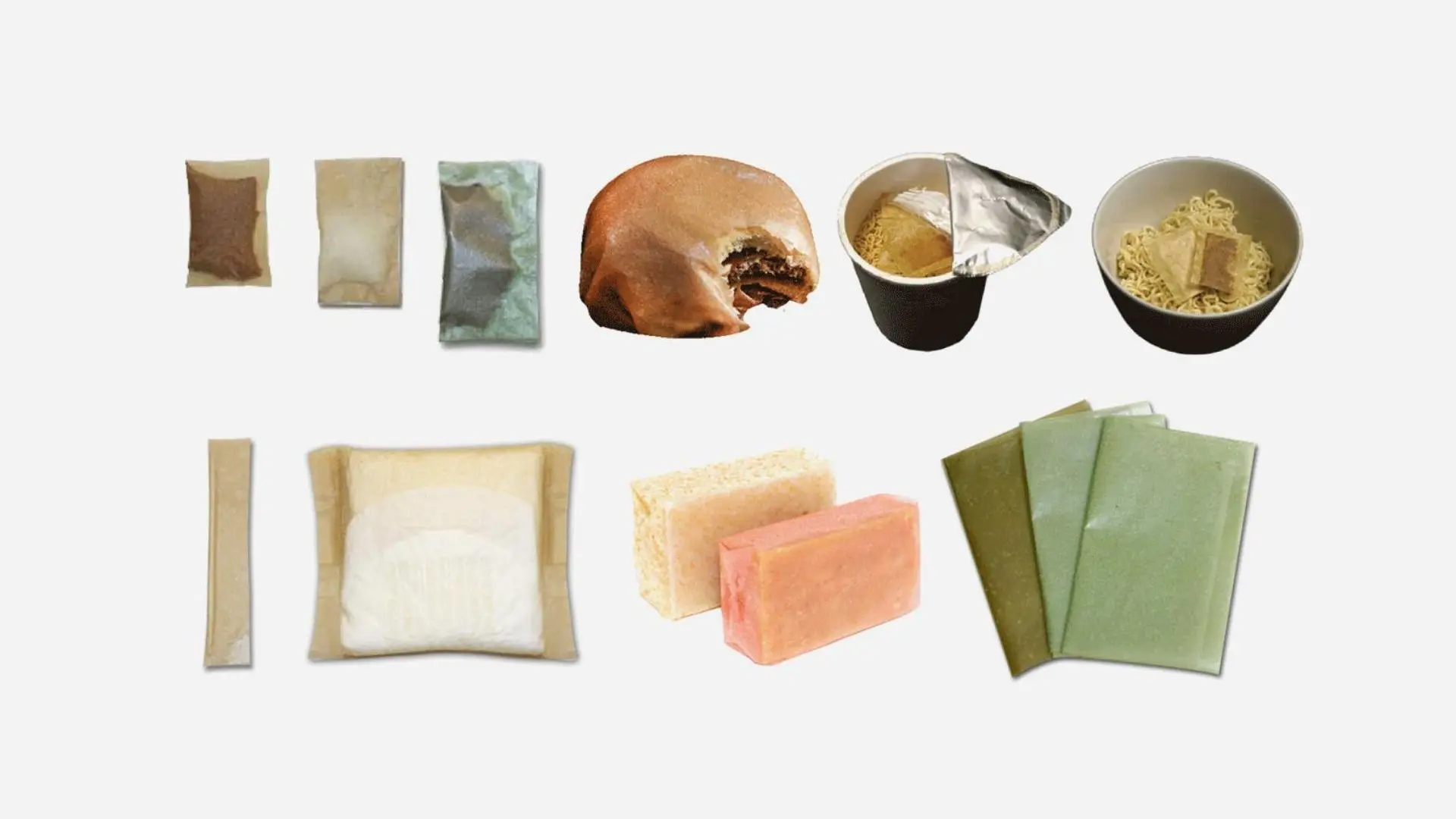Jellyfish by Fabio Verdelli Milano is no ordinary pushpin
Fabio Verdelli Design Studio redesigns an ordinary little tool. The result is a new symbolic, beautiful and functional daily object.
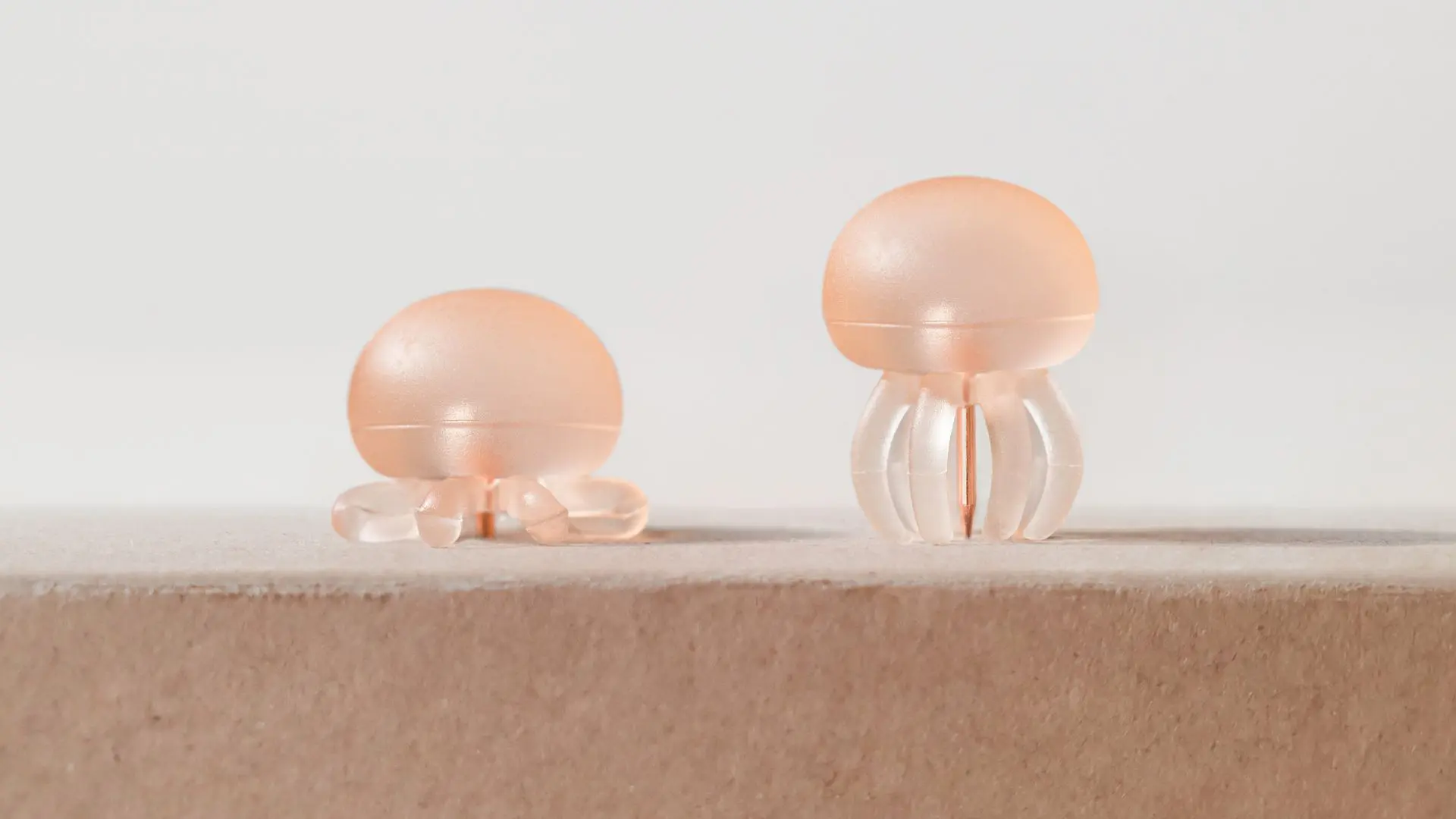
Jellyfish is the first product of Fabio Verdelli Milano, the spin off brand of the namesake Design Studio. A Kickstarter campaign tells all about it. And tells a lot about Fabio Verdelli’s work and values too.
There’s an untold rule in the design world: never try to become an entrepreneur.
Of course, there are many designers who successfully dared to ignore it.
Fabio Verdelli is one of them: he founded his own brand and managed the whole process that leads from an idea to its final user.
The first Fabio Verdelli Milano product is Jellyfish, a jellyfish-like revolutionary pin.
Ironic, beautiful, semi-transparent, soft, and smashable. It contains all the ingredients to be a best seller product.
Its Kickstarter campaign just started: here is the story of how to break untold rules to learn new things and understand how a brand works.
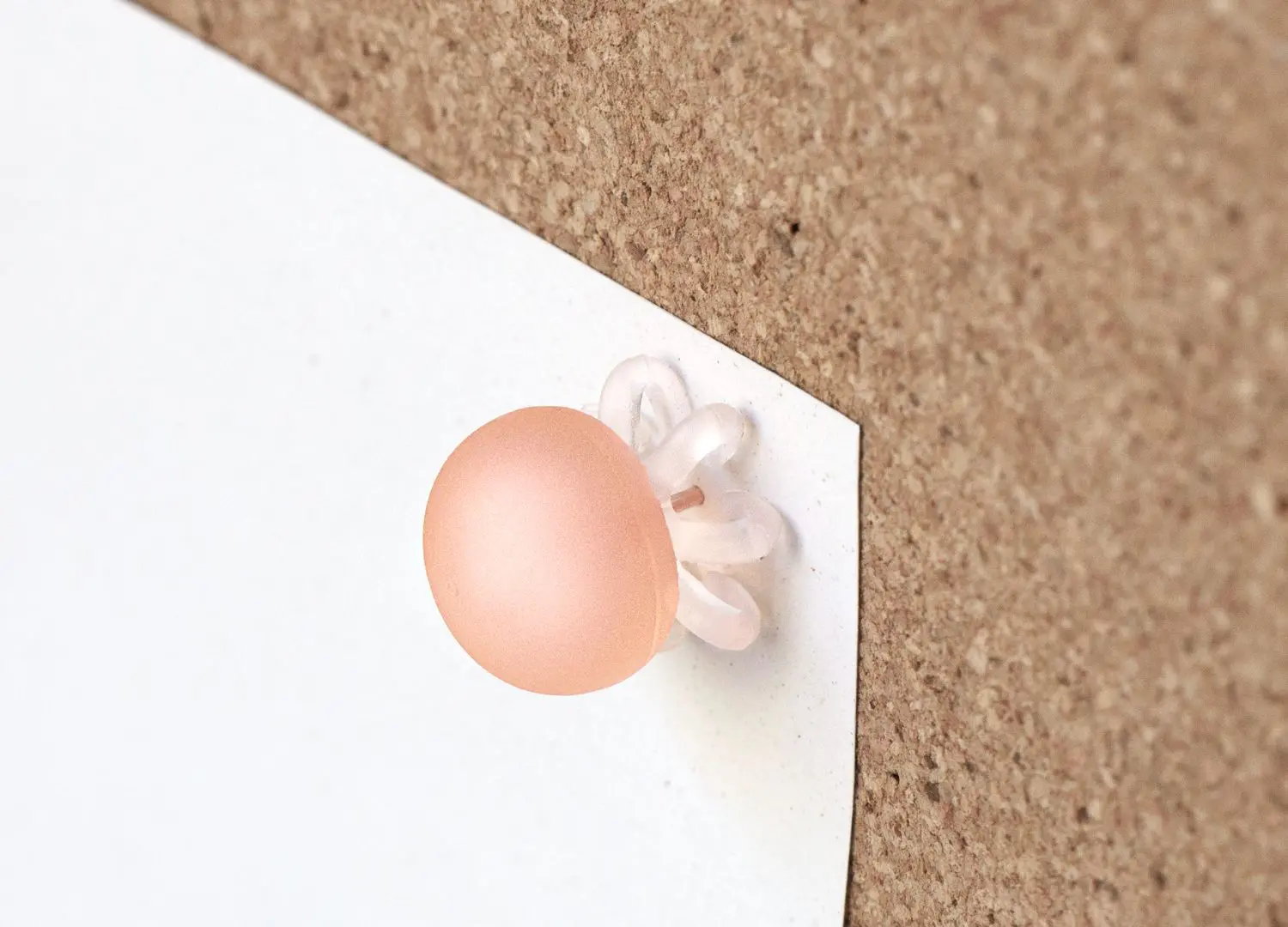
Fabio Verdelli is a renowned Italian designer with studios in Milan and Canton, China.
His core business is international design consultancy while his passion is XXth century Italian design because “it’s able to include irony and beauty everywhere.”
The idea to test its entrepreneurial competencies surges from the need to prove himself right in choosing to work on personal research and product design that integrate sustainability with Italian design values.
And of course a global human language.
A pushpin to understanding design
Jellyfish is a pushpin. It’s functional, funny, and it doesn’t sting as other pushpins do. It’s more sustainable, durable, enjoyable and practical.
A very simple and ordinary object that has been transformed into a soft, beautiful little tool by a clever operation of the redesign.
Shape and materials respond to the aim to improve an already semi-perfect anonymous object.
“We do it once per month: we work on a project without a client brief. It is useful to pitch the creativity of the studio and to nurture our own talents”, explains founder Fabio Verdelli.
“We work mainly as consultants for international brands: from time to time we really need to refocus our mindset about what the word “design” means to us”.

The redesign of a daily tool
A “no brief” project means to be free to explore the brink of creativity.
But it also widens the perspective on the real nature of an object. It is a way to ask questions and find the right answers through a design process that also has a rational attitude.
“We produced a lot of nice ideas, but finally it was clear to all of us that Jellyfish was the right one”, Fabio Verdelli says.
“I’m a lover of minimal and daily objects. Italians have an extraordinary talent for interpreting daily life. And I love this defy: beautiful objects made out of nothing. I’m not always good at it, because I indulge in design too, but…”
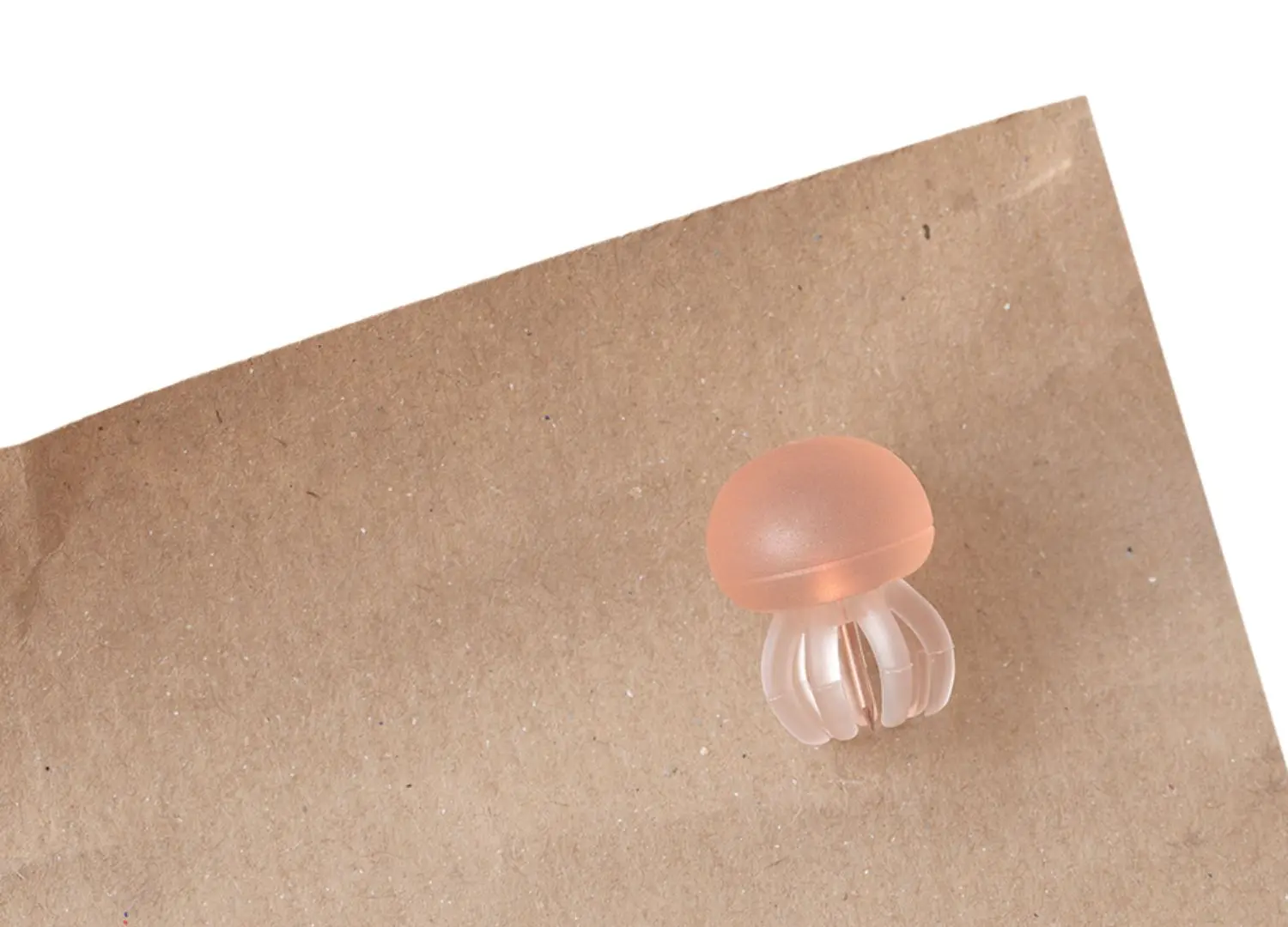
Material and shape to enhance sensorial contents
The jellyfish cartoon-like aesthetic is of course one of the main features. The pushpin makes you smile and it’s probably a good mood trigger.
Besides this, there’s the hard work on the sensory part that is always so important to define the instinctive understanding of a tool.
The round-shaped head protects the fingers and suggests the right grip. The density of the material (which is less soft than you may think) permits you to firmly push the pin.
The jelly tentacles have a triple function:
- they hide the spike
- they hang images or documents without pinning them
- they create a very funny and realistic feeling of smashing more than pinning something on the wall
For some reason, it is a very satisfying sensation with antistress effects.
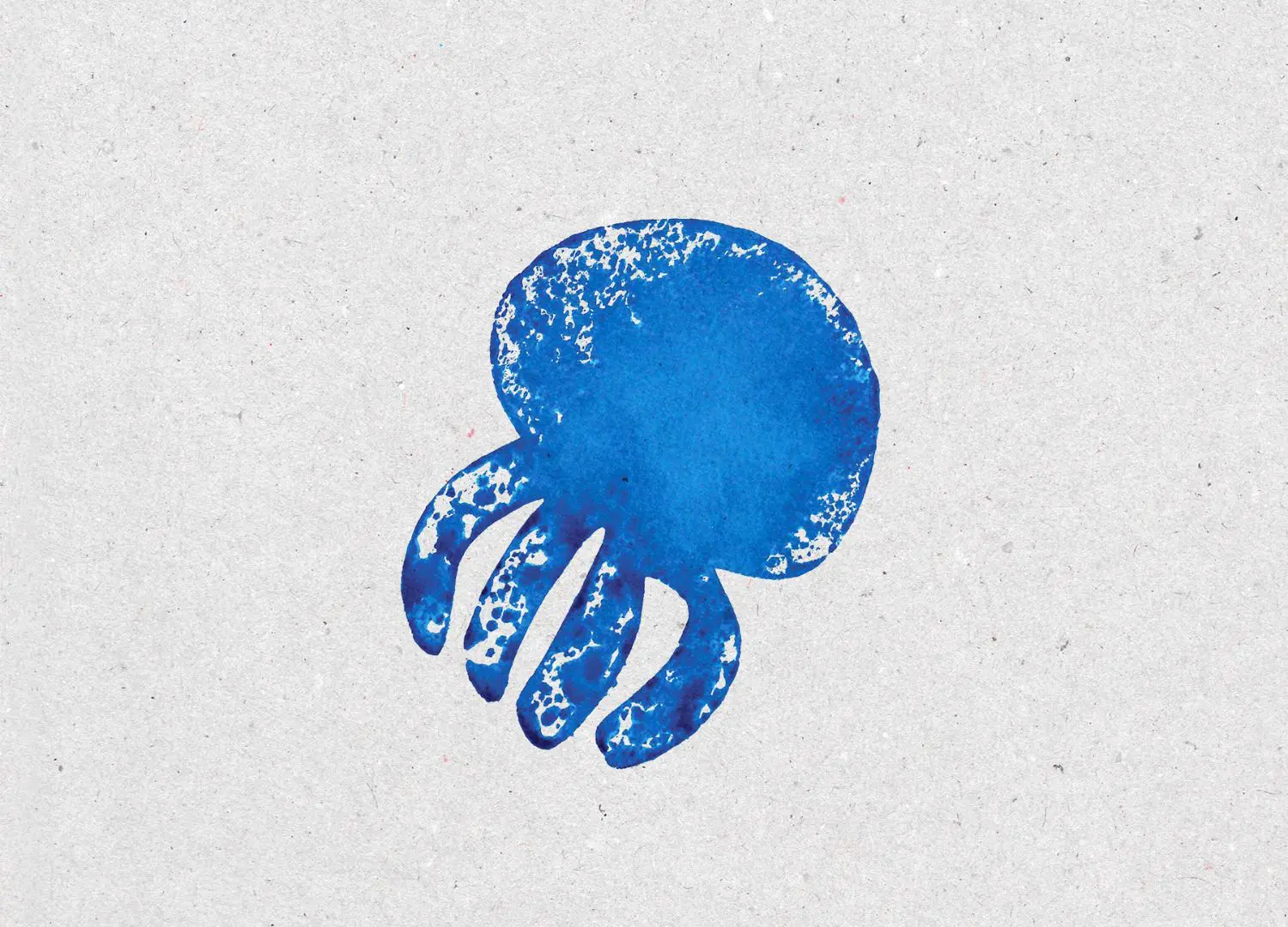
From design to production
“I needed to better understand how a brand works, after being a design consultant for many years,” tells Fabio Verdelli.
“Jellyfish was the perfect product to make a test on entrepreneurial dynamics. I also wanted to prove myself on Kickstarter, which to me is a place where people constantly transform ideas into value”.
It’s not easy to have the right time and energy to do it, but finally, Studio Verdelli decided to set itself on the Jellyfish project.

Start simple to learn more
“We started from a simple object because we wanted to transform this work into an educational opportunity. During the process, the whole team learnt a lot about logistics, production, manufacturing, materials, and business planning.
The hardest part? To make the manufacturer understand what we really wanted. We worked remotely with my Chinese partner and with a little workshop in Shenzhen”.
Despite the simplicity of the product, there are some features that are hard to reach, like a certain degree of transparency or the choice of materials and readymade parts.
It took almost a year for the final product.
Sustainability comes from choices
Jellyfish pushpin is a really sustainable product for many reasons.
“It was hard to find the right material for the shell. We chose Marfran, which is a TPES elastomer. We double checked it because we really wanted to use a soft, semi-transparent and resistant material but we also wanted to exclude silicons because they are not recyclable. I’m convinced that design has to be used to create a better world,” says Fabio Verdelli.
The pin is actually a part of an upcycling process: the pin parts are second choice ready made copper (a very safe antibacterial metal) nails that are suitable to be embedded into the jellyfish TPES head.
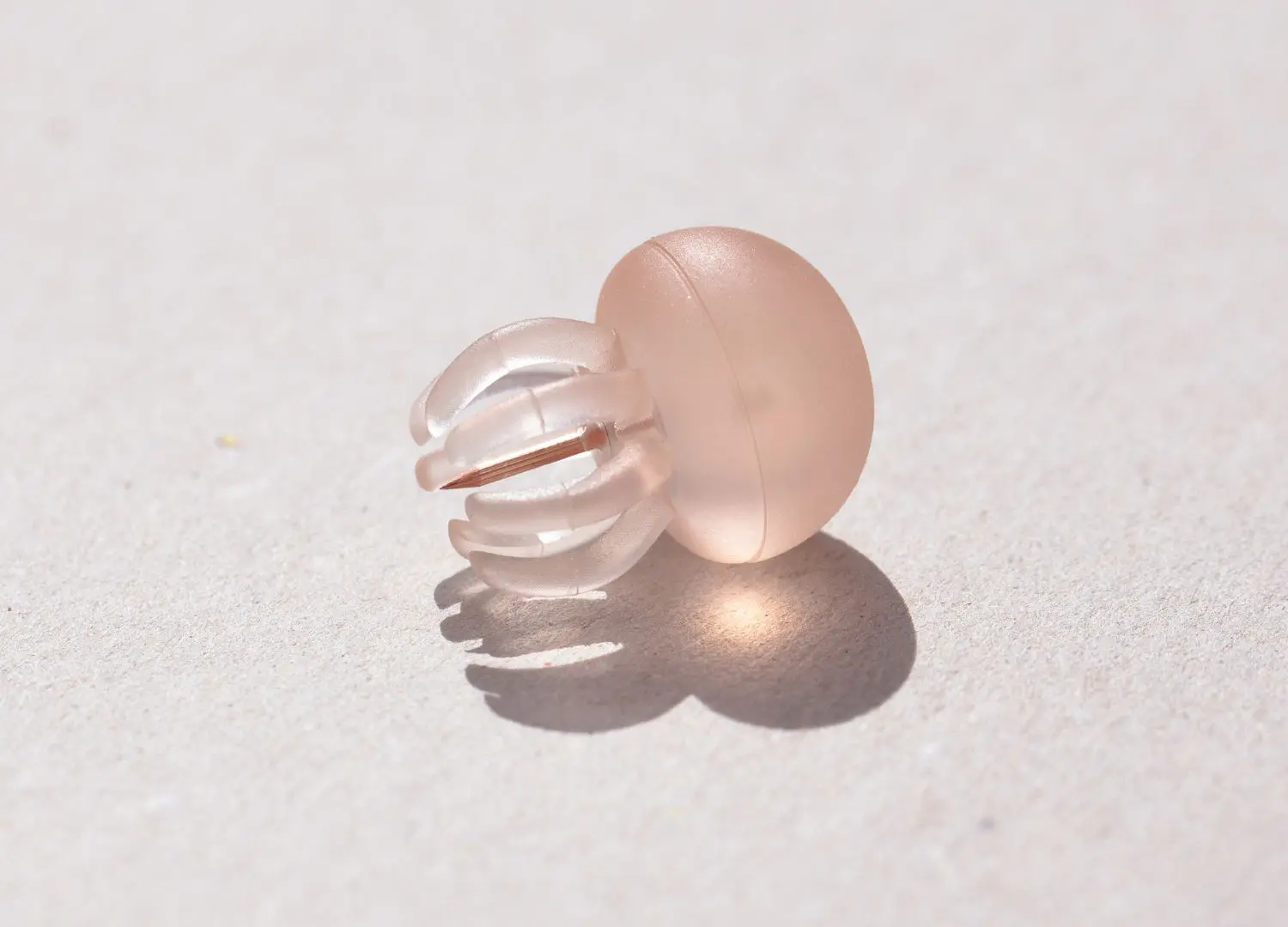
Kickstarter and Amazon: learning from alternatives
“We are very curious about how the Kickstarter public will receive Jellyfish. We know that our product is quite different from ordinary fundraising platform projects.
But we really wanted to understand how to globally communicate a project. We discovered that transparency and practical information are the first options for that digital environment,” explains Fabio Verdelli.
And then, what will be the next step?
“We are thinking about using Amazon as a distribution tool: another way to learn about contemporary marketing,” concludes the designer.
See more projects by Fabio Verdelli on Behance.

